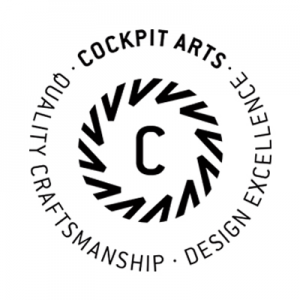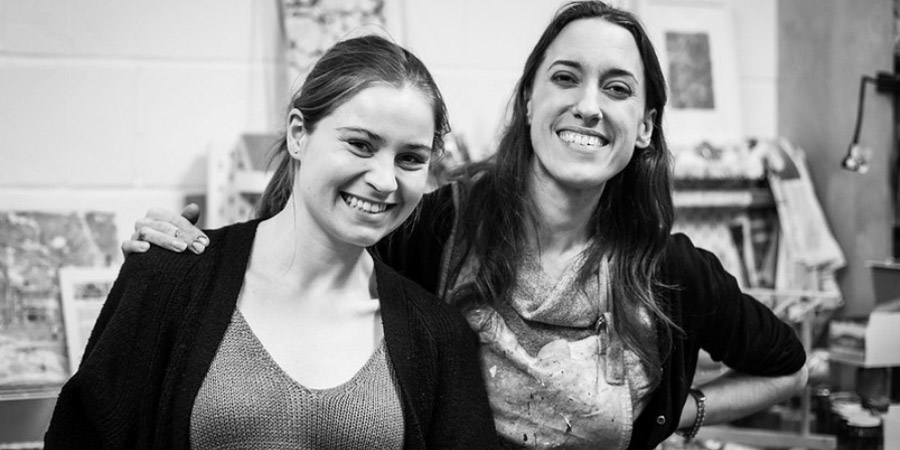Heritage Craft Training Case Studies – Lucy McGrath and Eloise Dethier-Eaton
How does it feel to let a new person in to your thriving craft business?

Lucy McGrath runs Marmor Paperie, a successful paper marbling business with a studio at Cockpit Arts. Despite being a relatively young business, it has grown rapidly and Lucy has become a well-respected marbler who is not afraid to push the creative boundaries of the craft. Marbling is time consuming and Lucy was finding it challenging to both build the business and continue to develop the technical expertise in being a traditional marbler. She was keen to spend more time on publicity, developing new ideas and products, and her mission to preserve marbling skills for the future.
It was time for someone new to join the business. Lucy comments that this did raise some important issues for her and it was important that this happened when she was ready. On a practical level she ensured that she could financially support a member of staff and that the available studio space would allow it but, on a personal level, she also acknowledges that this is not always an easy transition to make:
“It is hard to relinquish control and bring someone in. I would recommend it.”
In 2019 Eloise joined Lucy’s business through the Cockpit Arts’ Creative Employment Programme. This pioneering programme was set up to respond to the needs of the craft sector and provides support to craft employers at the stage when they are ready to grow their business. It is aimed at young people aged 16-24 from the local area with an aim to reduce the barriers to employment and create more opportunities in the craft sector over the long term.
Both Lucy and Eloise’s experience of the programme has been very positive. Eloise has completed the apprenticeship and will continue to be employed in the business alongside developing her own creative practice as a print maker. It has been successful in that is has enabled the business to grow and new products have been developed. Lucy describes the viability of a craft business as “the point at which it gets repetitive, when it becomes about refining the process, consistency and control of materials” and it is this that marks the transition from skilled amateur to professional maker. Eloise can now contribute to the business as a skilled professional maker and also in helping to run day to day operations. Lucy has found that it has freed her up to finesse her own high-level marbling skills and to try new approaches.
There have been some frustrations along the way. There were elements of the Business Administration apprenticeship, particularly the ‘off the job’ training, that were challenging to manage in a small business. In short, the end result was very positive and the support received from Cockpit Arts was invaluable, but the formal process of completing the apprenticeship sometimes felt like “a means to an end”.
When asked what she has learned from the process, Lucy says that “communication is the key to success!” She is also keen to point out that it is this passing on of skills that will ultimately ensure a future for her craft in a contemporary context.
“Heritage crafts need to be kept fresh and interesting. Look for someone who is different to you, with different skills, and who will challenge you in a good way.”
- https://cockpitarts.com/designer-makers/lucy-mcgrath
- https://themakers.directory/craft-directory-members/lucymcgrath
Apprenticeship Structure
- Length – 1 year
- Qualifications gained – Level 2 Business Administration
- Financial Support – Supported by the Cockpit Arts Creative Employment Programme and funded by the William Boreman’s Foundation. A wage grant of £3,800 was received that covered a third of the total wage bill.
- Payments to apprentice – Paid at above the apprenticeship minimum wage
- Recruitment process – Advertised and recruited through the Cockpit Arts’ Creative Employment Programme.




